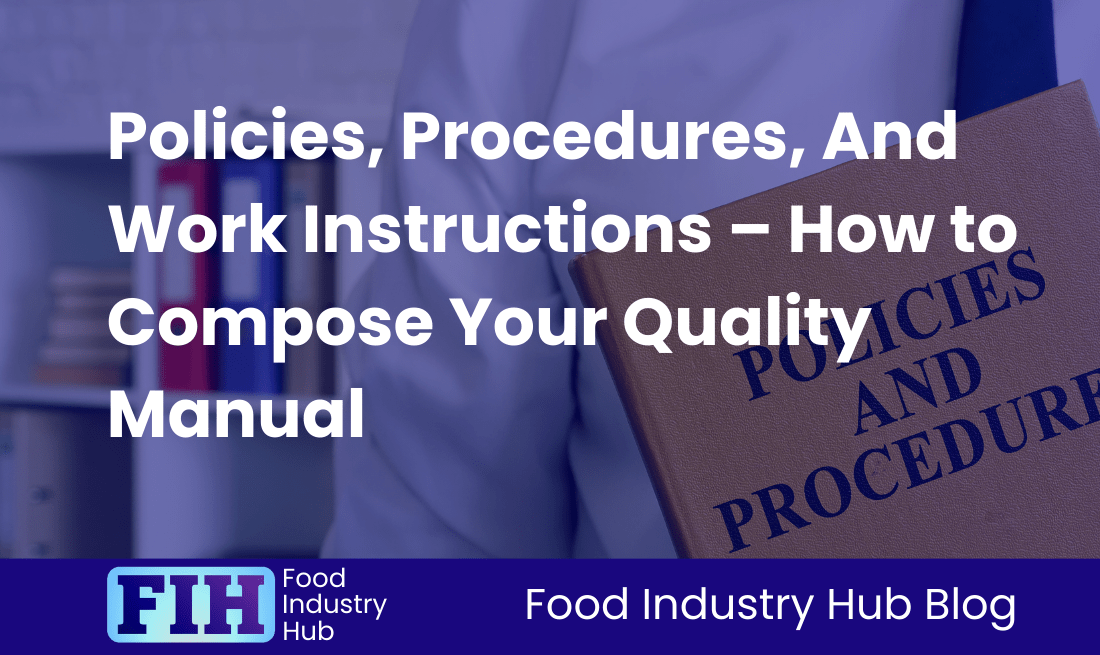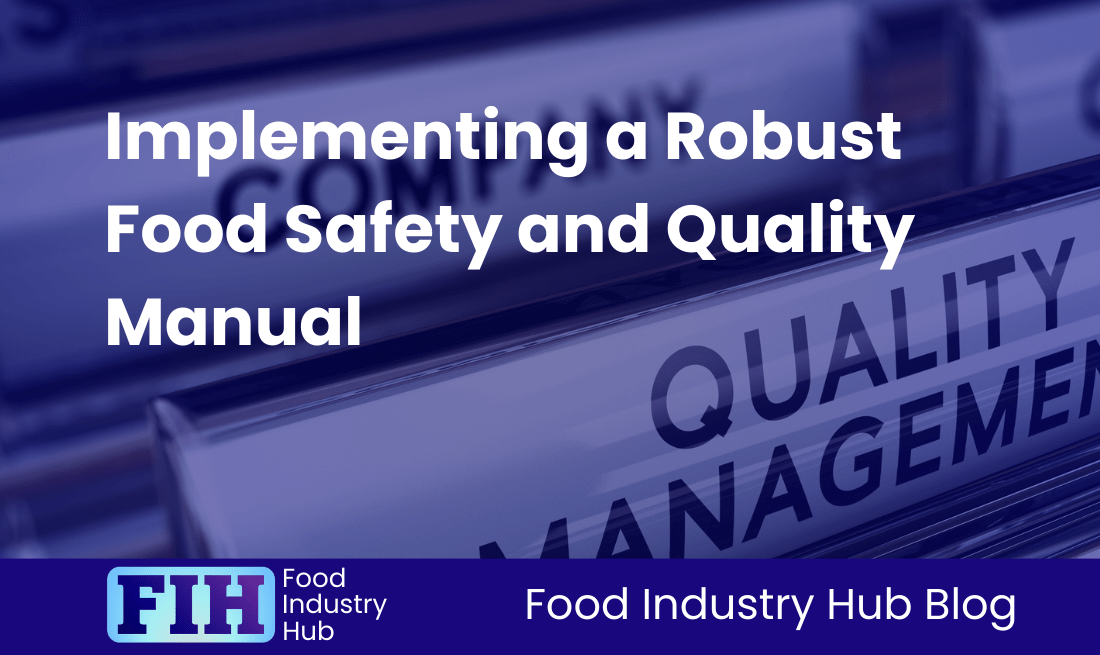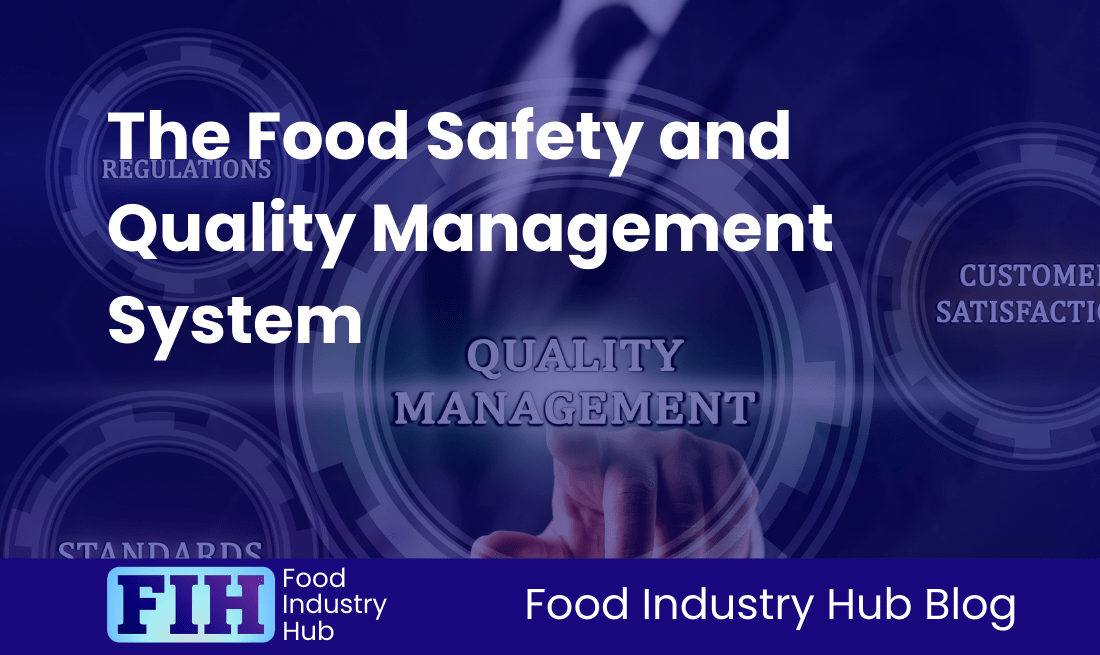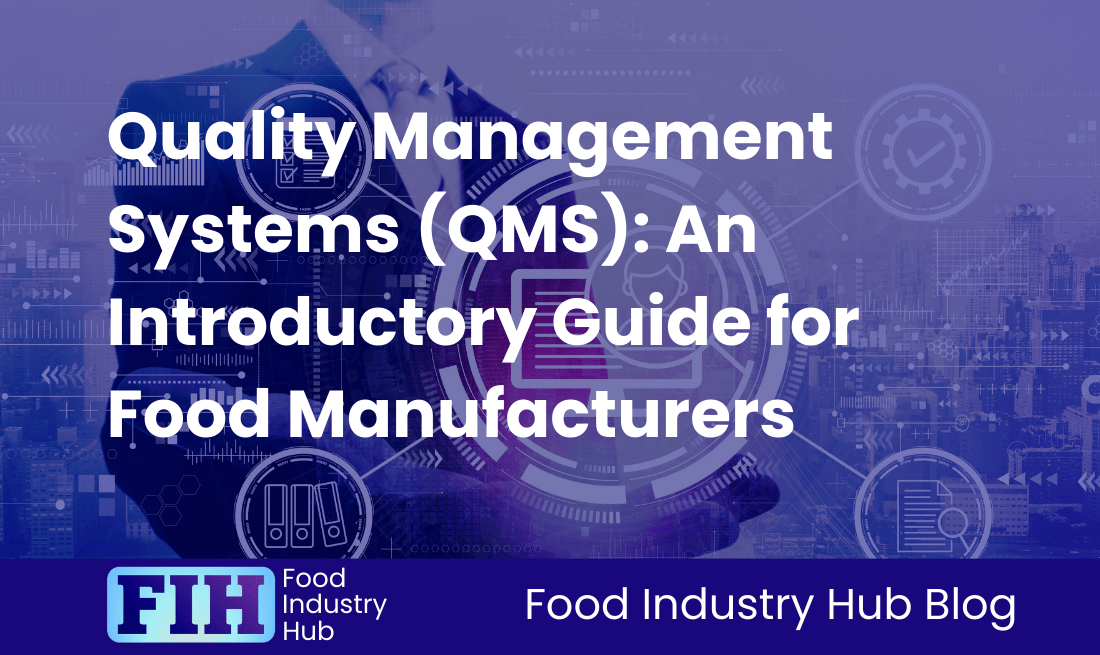Know: Document Control
Contents
Introduction
Key Takeaways
Regulatory Compliance in Document Control
Document Lifecycle Management & Document Control
Integrating Document Control with Quality Systems
The Role of Technology in Document Control
Risk Mitigation and Improvements in Document Control
Emerging Trends in Document Control Technology
Conclusion
Introduction
Document control is an essential function, acting as a key tool to secure quality, safety, legality, and authenticity through every stage of production. Its importance runs deep, effectively forming the foundation that supports compliance with assurance guidelines and helps maintain steady and dependable operations.
Document Control in Food Manufacturing
Within the context of food manufacturing, document control pertains to the management of all documents relevant to the production process and quality management system. This covers the entire lifespan of these documents—from their inception, approval, and safekeeping to their retrieval and updates. Included in such documentation are Standard Operating Procedures (SOPs), quality manuals, and Hazard Analysis and Critical Control Points (HACCP) plans. Ensuring that this documentation is up-to-date, precise, and in keeping with industry regulations, food manufacturers can fend off potential botches that could jeopardise product safety or quality.
The Importance of Document Control
Document control serves a range of fundamental purposes, each underscoring its overarching role. It safeguards food safety and quality by endorsing the adherence to outlined procedures, leading to uniform product outcomes. It also provides a framework of certainty over the content of documents in use at any particular time.
Key Themes
The upcoming discussion corresponds to several integral themes. Firstly, we will look at regulatory compliance to see how document control aligns with core regulations like the Food Safety Modernisation Act (FSMA). Secondly, we will inspect the management of document lifecycles to focus on how proficient control over document origination, use, and retirement can optimise operational efficiency.
Then, we will navigate the connection of document control with quality management systems by investigating their harmonious relationship in maintaining high product standards. Lastly, the contemporary role of technology in automating and streamlining document control processes and pro-active risk management strategies will also be analysed.
Knowledge of the numerous facets of document control can empower food manufacturers. This not only enables them to meet regulatory expectations but also iteratively refines the efficiency of their operations. All this action lends to their ultimate goal: safeguarding the products and their reputations within this competitive sector.
Key Takeaways
Document control plays a pivotal role in the food manufacturing sector, acting as the cornerstone for compliance and efficient operation. Amidst an arena where safety, quality, and legal standards determine success, effective document management is key. Compliance structures like ISO standards, FDA guidelines, and HACCP protocols demand meticulous document control to prevent potential issues allied with non-compliance and ensure the utilisation of the latest, approved information.
The Need for Regulatory Compliance in Document Control
One of the vital aspects of efficient document management involves lifecycle management, covering each stage of a document’s existence – from its creation to its archiving. This systematic approach ensures record-keeping accuracy, relevance, and supports operating efficiency by limiting administrative burdens while enhancing team collaboration.
The Role of Document Lifecycle Management in Efficient Document Control
Technology and automation have significantly advanced document control processes. Incorporating document management systems leads to refined workflows, expediting reviews and approvals, alongside enhancing data security with version control and audit trail features. This progress in technology is vital to maintain compliance and shield sensitive data from unsanctioned access.
Contribution of Technology and Automation in Document Control
Mitigating risk is another significant aspect of document control. By establishing firm controls over document accessibility and ensuring the use of current versions only, organisations can drastically decrease the scope for errors, compliance breaches, and operational inefficiencies. Such proactive steps ultimately protect operational integrity, reinforcing the organisation’s resolve to uphold safety, quality, and compliance within food manufacturing.
Importance of Risk Mitigation in Document Control
These insights serve as a basis for understanding how optimal document control is achieved through regulatory compliance, lifecycle management, technology integration, and effective risk management, thereby promoting operational excellence in the industry.
Food Industry Hub Management Systems can significantly boost the effectiveness of your food safety and quality management system, leading to improved confidence and elevated quality assurance throughout your operations.
Compliance in Document Control
Document control plays a pivotal role in safeguarding food safety and ensuring regulatory compliance in the food manufacturing industry. This process encompasses the management of essential documents, including their creation, approval, distribution, and safekeeping. Through such control, one can ensure that prescribed procedures and processes are consistently followed. An effective document management system doesn’t just protect product quality and safety, but also adheres to a host of legal requirements and industry regulations.
Role of Document Control in Ensuring Safety and Compliance
Proper document management is integral for compliance with food safety regulations and assurance schemes. The maintenance of up-to-date documentation—ranging from operational procedures to quality manuals—enables food manufacturers to minimise errors that could lead to safety risks or compliance issues. A consistent review and updates of the documents pave the way for accountability and adherence within the process, thus boosting overall product safety and quality assurance in the food production process.
Connection Between Document Control, Legal Requirements, and Food Safety Regulations
Compliance with legal expectations is intrinsically tied to strong document control practices. As an example, the FSMA requires the incorporation of documented preventive controls to ensure food safety. Regulatory bodies across different jurisdictions mandate food manufacturers to keep comprehensive records to exhibit compliance. This is especially important in relation to safety operations like hazard analysis and risk assessments. Furthermore, HACCP insists on precise documentation of all control points in the production process, which serves as a written record of safety measures and procedures.
Link Between Document Control and Operational Efficiency
Effective document control isn’t just about compliance, but it also considerably enhances operational efficiency. Streamlining the document management process cuts down time spent searching for and verifying information, thus increasing productivity and decreasing error rates. Automated workflows within a document control system expedite approval procedures and give teams real-time access to crucial documentation. This becomes particularly beneficial during product recalls, where error-free documentation can considerably aid in traceability and prompt action.
UK Regulations: FSA Requirements
In the UK, the Food Standards Agency (FSA) enforces rigorous food safety and hygiene regulations, which heavily rely on effective document control practices. Food manufacturers must keep precise records of ingredients, production processes, and adherence to established hygiene standards, all of which are essential for demonstrating compliance with FSA requirements. Effective document control practices ensure timely updates and accurate record-keeping, both of which are fundamental for audits and inspections.
US Regulations: FDA Requirements
In the U.S., the Food and Drug Administration (FDA) mandates that food manufacturers adopt rigorous document control practices. These include comprehensive record keeping related to food safety, such as preventive controls and sanitation protocols, in accordance with the FSMA. Proper documentation aids compliance with regulatory obligations and ensures that companies can respond promptly to inspections and audits by providing accurate data to regulatory authorities.
EU Regulations: EFSA Requirements
The European Food Safety Authority (EFSA) has a comprehensive regulatory framework designed to protect food safety across the EU. This mandates that food businesses maintain extensive documentation on hygiene practices, risk assessments, and traceability. Compliance with the General Food Law, which stresses the importance of documentation processes, is key to ensuring consistent compliance with food safety standards. Document control plays an important role here, facilitating the management of food safety documentation and enhancing compliance with EFSA regulations.
Document Lifecycle Management & Document Control
Document lifecycle management (DLM) involves a comprehensive process for managing the various stages of a document, beginning from its inception to its eventual deactivation. Such a systematic approach is particularly noted in the food manufacturing sector, where the precision, availability, and safeguarding of information can directly influence safety and adherence to industry standards. Successful document control features aid in preserving the trustworthiness of records, which are fundamental for quality assurance and regulatory conformity throughout the document’s existence.
Relevance of Version Control and Traceability
Version control is a basic part of successful document control; it provides the organisations with the ability to document all modifications to their paperwork over time. This encompasses the assignment of unique version identifiers, logging changes, and keeping a transparent audit trail. Such actions ensure that all stakeholders are consistently working with the most recent data. This measure not only enables collaboration but is also key for adhering to regulations, ensuring that food safety protocols, production standards, and quality control documents are reliably updated and checked. By ensuring precise traceability, version control aids in minimising risks that could result in product recalls or regulatory non-compliance, promoting a transparent setting for audits and inspections.
Importance of Centralised Document Registers in Effective Document Control
Centralised document registers serve a key function within a document management framework, as they provide a central point of access for all organisational documents. This process enhances consistency, improves security, and simplifies the retrieval process. It ensures that all employees can swiftly access the current documents, and lowers the possibilities of errors that could be associated with outdated data. The ability to maintain an ordered, auditable record not only fortifies compliance efforts but also supports internal and external audits by providing a neat, structured view of all documentation history. In the setting of food manufacturing, centralised registers are essential for managing sensitive documents like specifications and operational procedures, ensuring all records are readily available and current.
Implementing resilient document lifecycle management strategies like effective version control, well-established retention policies, and centralised document registers, allows food manufacturing organisations to boost operational efficiency and regulatory compliance. This significantly adds to overall product safety and quality assurance.
Sign-up for the Food Industry Hub Mail Service
We regularly produce new content for food industry professionals, and the Food Industry Hub Mail Service is the best way to stay up to date with the latest additions.
Signup today to be added to the Food Industry Hub mailing list.
Integrating Document Control with Quality Systems
Document control serves as a fundamental element in quality systems, of great importance especially in sectors such as food manufacturing. It ensures a systematic approach towards the creation, approval, distribution, and archival of documents, adhering to regulatory standards such as ISO 9001. Grasping the way document control interlinks with quality systems, especially concerning closed-loop processes, data integrity, employee training, and quality assurance measures, is beneficial.
Closed-Loop Processes
In quality systems, closed-loop processes denote an interconnected network where feedback drives continuous improvement. Document control greatly strengthens these processes by ensuring current and operationally accurate documentation — inclusive of procedures, records, and specifications. To illustrate, if a change arises in the manufacturing process, a document control system can promptly update relevant documents—making use of Standard Operating Procedures (SOPs) via automated workflows. This guarantees that all team members have the newest approved versions, bolstering a cycle of planning, executing, checking, then acting (PDCA), in alignment with standards such as ISO 9001.
Data Integrity
An essential requisite, data integrity ensures that records remain accurate, dependable, and complete. Document control systems fortify data integrity with several mechanisms. For instance, version control ensures that only the latest approved documents are accessible to users. Additionally, audit trails offer time-stamped records of document changes, enabling organisations to track who implemented modifications and when. Electronic signatures further authenticate document approval alongside providing verification evidence. Secure storage measures guard documents from unauthorised access with the use of role-based permissions and encryption technology.
Connection to Employee Training and Quality Assurance Initiatives
Document control has connections to both employee training and quality assurance measures. Essentially, document control systems can merge with training management tools—automating training assignments based on document updates. This ensures that employees maintain awareness of the latest procedures. Document control, by maintaining/facilitating accurate and controlled records of processes, bolsters quality assurance efforts. This equips organisations to maintain quality standards consistently while addressing deviations swiftly. Document control also aids in ensuring compliance with regulatory standards; a necessity for any quality assurance framework which lessens the risks linked with non-compliance.
The integration of document control within quality systems nurtures closed-loop processes, preserves data integrity, and elevates both employee training and quality assurance initiatives. By efficiently melding these elements, organisations can streamline operations, adhere to compliance, and facilitate continuous improvement.
The Role of Technology in Document Control
Technology is becoming an indispensable tool in advancing document control processes through automation, security enhancements, and compliance assurance. Traditional methods on paper are giving way to progressive software solutions such as electronic document management systems (EDMS) and document automation software. These applications expedite the process of document creation, storage, and distribution, reducing manual errors and enhancing document accessibility to ensure that stakeholders always have the latest versions available at their fingertips. These technological innovations are embedded with strong security features such as encryption and multi-factor authentication to guard against unauthorised access.
Overview of eQMS Solutions
Electronic Quality Management Systems (eQMS) form an integral part of efficient document control, particularly in sectors such as food manufacturing where regulatory compliance holds significant importance. These systems offer a structured process for managing quality documentation through its lifecycle – from creating and reviewing to approving and storing. eQMS solutions ensure that all documents are accurate, up-to-date, and within easy reach, thereby making compliance with standards like ISO 9001 and food safety systems like HACCP easier. eQMS tools come equipped with integrated document management capabilities, automated workflows that expedite approval processes, and features that enhance team collaboration.
Benefits of Cloud-Based Accessibility in Document Control
Cloud-based document control solutions bring a host of benefits to the table, particularly for food manufacturing operations. One of the major advantages is the ability to access essential documents remotely, at any time, by authorised personnel. This flexibility encourages collaboration among teams spread across different locations, ensuring that everyone can access the needed information as and when required. Moreover, cloud solutions can easily be scaled up or down according to evolving document needs, eliminating the limitations of physical infrastructure. They also offer enhanced security features such as backup, encryption, and stringent access controls to protect sensitive documents from unauthorised access.
How ERP Integration Streamlines and Automates Document Control Processes
Integrating document control with Enterprise Resource Planning (ERP) systems can markedly streamline operations, automate workflows, and enhance data integrity. This combined approach offers a unified platform for handling operational as well as document-related processes, enhancing consistency and decreasing errors. ERP systems, for instance, can automate workflows related to document creation, review, and approval, reducing manual intervention making the process more efficient. This not only optimises operational efficiency but also ensues documentation adhering to organisational policies and regulatory requirements is precise and readily available. In sectors like food manufacturing, where accurate production records are a key part of maintaining quality control, ERP integration with document control can bring significant advantages for compliance and productivity.
Risk Mitigation and Improvements in Document Control
Document control plays a pivotal role in mitigating risks, especially within the food manufacturing sector where regulatory compliance and consumer safety take precedence. The rigorous maintenance, accurate indexing, and availability of documents allow organisations to reduce errors leading to compliance breaches or safety mishaps. Applying strategies such as version control, consolidated document storage, and vigilant access protocols solidify information security while promoting accurate and swift decision-making. These strategies serve to shield against data breaches while maintaining consistent availability of crucial documentation necessitated for immediate corrective action in conditions of quality concerns or product recalls.
Role of Document Control in Facilitating Effective Product Recall Processes
Efficient product recall processes are highly reliant on document control. An effective document management system – in tandem with effective record-keeping – enables swift access to key documents including production records, lists of ingredients, and distribution particulars. This readily available information allows organisations to identify affected products quickly, thereby reducing risks to consumer health. Proficient document control not only underpins traceability, but also augments communication with stakeholders amid a product recall, aiding organisations in abiding by regulatory expectations and reacting quickly to safety issues.
Role of Internal Audits and Compliance
Internal audits serve a significant part in sustaining compliance and recognising areas for enhancement within document control systems. These audits enable organisations to gauge their conformity to set policies and regulatory criteria, such as ISO 9001:2015. Routine evaluations can highlight weaknesses in document security and management methods, offering valuable insights necessary for corrective measures and improved compliance stance. By enforcing structured internal controls and carrying out audits, food manufacturers can guarantee that their document procedures are in line with legal prerequisites whilst reducing instances of non-compliance.
Emerging Trends in Document Control Technology
The document control sector is rapidly evolving due to the integration of digital technologies. Such innovations aim to revolutionise the way organisations manage their documents, promising enhanced security, efficiency, and transparency.
Technological Advancements for Enhanced Security, Efficiency, and Transparency
Emerging technologies consistently improve security and efficiency of document control. Cloud-based solutions offer scalability and agility, along with immediate collaboration opportunities. This diminishes the need for extensive infrastructure costs and improves version control. Additionally, the emergence of electronic search capabilities allows document control systems to dismantle information silos, granting access across various systems with a single query thereby enhancing productivity. Advanced security measures like improved access controls, encryption, and detailed audit trails ensure that sensitive information is well-protected, aligning with relevant compliance schemes.
Staying Ahead of Regulatory Changes and Technological Advancements
To keep apace with changing regulations, organisations must adapt their document control systems to include emerging technologies. Integrating the Internet of Things (IoT) can yield real-time insights and automate key processes, augmenting decision making abilities. Robust data privacy measures such as comprehensive encryption and thorough access controls can protect sensitive data and help meet new regulatory demands. Proactive adaptation to regulatory changes involves continuous monitoring and refinement of document control practices to ensure alignment with legal and industry standards.
Leveraging the potential of technological advancements, the document control sector stands ready to witness substantial improvements in areas of security, efficiency, transparency, while adeptly navigating through regulatory complexities.
Conclusion
Document control is a cornerstone of the food manufacturing industry, serving as the groundwork for ensuring product quality, safety, and compliance with regulatory standards.
The role of document control in ensuring all manufacturing processes follow precise and current procedures is significant in reducing the risk of deviations that could detract from product quality and safety. Its importance for complying with regulatory requirements such as those in the Food Safety Modernisation Act (FSMA) and HACCP is critical in protecting consumers and maintaining compliance. Documents that are well regulated can also streamline work and enhance employee efficiency by reducing downtime triggered by unclear instructions or outmoded practices.
Document control excels in regulating risks associated with non-compliance by making sure all processes adhere to compliance directives. It involves managing documents from their creation through to distribution, alteration, and eventual archiving. Special importance is placed on version control and managing changes, ensuring the current versions of documents are used and that any modifications are properly authorised and recorded.
Integrating document control within quality systems is necessary for maintaining precision and reliability. This comprehensive approach ensures that all quality-related documents, like standard operating procedures (SOPs) and quality manuals, are correctly overseen and promptly accessible. As standards like ISO 9001 require continuous improvement, a robust document control system offers a framework for regular reviews and updates.
Using technology in document control can enhance efficiency through digital solutions that optimise workflows, refine document versioning and assist with access control. Digital signatures and thorough audit trails provide additional support in tracking changes and preparing for regulatory audits, enhancing layers of accountability to document management.
Appropriate document control lessens the risk of using obsolete documents or unauthorised modifications, which could lead to compliance problems or operational errors. It also assists in traceability during product recalls, helping companies rapidly identify and manage safety issues.
Key Learnings and Future Insights
The food manufacturing industry is expected to embrace an amplified adoption of digital document control systems, enhancing efficiency and compliance. Document control will play an important role in integrating quality management systems and promoting cycles of continuous improvement. As technology continues to automate workflows, businesses will reap benefits from improved access controls and enhanced audit readiness.
Integrating data-focused insights into document management practices will empower companies to make well-informed decisions, ensuring their systems evolve alongside present regulations and industry advancements. Document control thus remains not just a regulatory requirement, but also a strategic foundation for guaranteeing quality, safety, and operational efficiency in the food manufacturing sector. Adopting technological advancements will be significant in refining document control systems and encouraging innovation in this crucial field.
About The Food Industry Hub Knowledge Centre
The Food Industry Hub knowledge centre delivers informative content on a variety of topics pertinent to the food manufacturing industry.
You can return to all topics by clicking here.
From The Food Industry Hub Blog
Expanding on this topic with related content from our blog.














